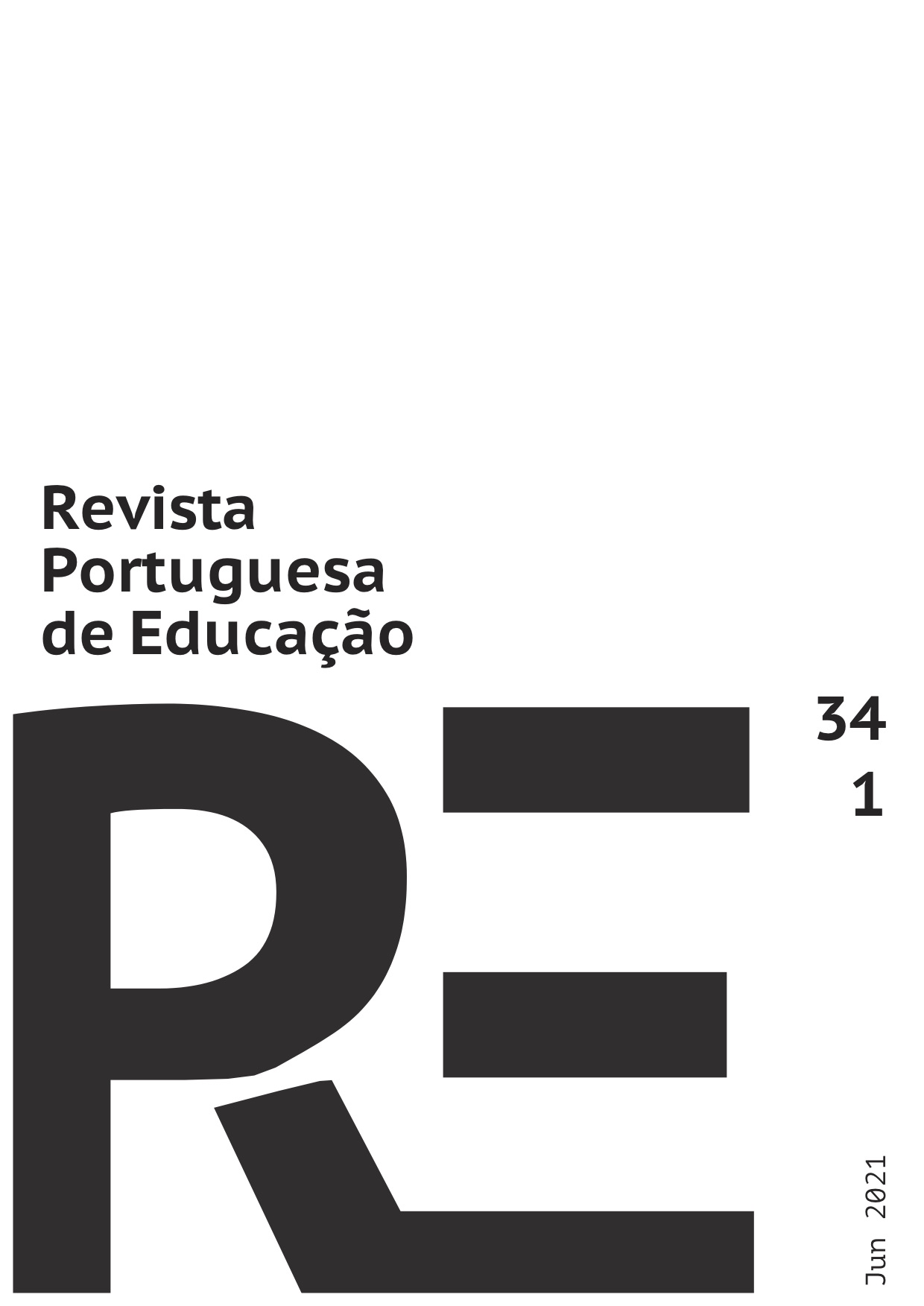Saberes artísticos permeando a formação de pegagogos e seu Eco nas Escolas
DOI:
https://doi.org/10.21814/rpe.18841Palavras-chave:
Formação inicial, currículo, saberes artísticosResumo
No presente artigo, apresentamos uma reflexão acerca da arte como campo de saber legitimado (ou não) para a formação de professores(as) pedagogos(as) e a repercussão dessa formação em suas futuras atividades docentes com artes, nas séries iniciais da Educação Básica, e a relação dessa formação com o que determinam os documentos legais no país. Para isso, analisamos o contexto da formação inicial em Pedagogia, pontuando brevemente a evolução do campo da Arte no currículo escolar no Brasil, com foco na educação estética. Discutimos também sobre os saberes em artes que são (ou deveriam ser) proclamados e exercidos nos currículos e o que, de fato, se pratica nos currículos dos cursos de Pedagogia da Universidade Estadual do Ceará – UECE/Faculdade de Educação de Itapipoca – FACEDI – e a articulação desses currículos com as atividades de pesquisa e extensão existentes nessa instituição. Os resultados de nossas análises apontam para a compreensão de que currículo não é mera prescrição, mas um conjunto de possibilidades que nos exige considerar a diversidade presente no cotidiano escolar como elemento formativo e interventivo.
Downloads
Referências
ANDES. (2013). Proposta da Associação Nacional dos Docentes do Ensino Superior-SN para a Universidade Brasileira. Cadernos ANDES, 2 (4.ª edição). Sindicato Nacional dos Docentes das Instituições de Ensino Superior.
Barbosa, A. M. (1985). Arte-educação: conflitos e acertos. Max Limonad.
Barbosa, A. M. (2014). A imagem no ensino da arte. Perspectiva.
Bourdieu, P. (1983). Questões de sociologia. Marco Zero.
Bourdieu, P. (2004). Os Usos sociais da ciência: por uma sociologia clínica do campo científico. UNESP.
Bourdieu, P. (2006). A Produção da Crença: contribuição para uma economia dos bens simbólicos. Zouk.
Brasil (1971). Lei de Diretrizes e Bases da Educação Nacional nº 5692/71. Brasília: Ministério da Educação.
Brasil (1996). Lei de Diretrizes e Bases da Educação Nacional, nº 9394/96. Brasília: Ministério da Educação.
Brasil (1997). Parâmetros Curriculares Nacionais: Artes. Brasília: Ministério da Educação.
Brasil (2006). Diretrizes Curriculares Nacionais para o Curso de Graduação em Pedagogia. Brasília: Conselho Nacional de Educação/Conselho Pleno.
Brasil (2008). Lei Nº 11.769, de 18 de agosto de 2008. Brasília: Ministério da Educação.
Brasil (2010). Diretrizes Curriculares Nacionais para a Educação Infantil. Brasília: Ministério da Educação/Secretaria da Educação Básica.
Brasil (2012). Diretrizes Curriculares Nacionais para o Ensino Médio. Brasília: Ministério da Educação/Secretaria da Educação Básica.
Brasil (2015). Diretrizes Curriculares Nacionais para a Formação em Nível Superior. Brasília: Conselho Nacional de Educação/Conselho Pleno.
Brasil (2016). Lei Nº 13.278, de 2 de maio de 2016. Brasília: Ministério da Educação.
Brasil (2017). Base Nacional Comum Curricular: Ensino Médio. Brasília: Ministério da Educação.
Brasil (2018). Base Nacional Comum Curricular. Brasília: Ministério da Educação.
Coelho, T. (2012). Dicionário crítico de política cultural. Iluminuras.
Duarte-Junior, J. F. (2010). A montanha e o videogame: escritos sobre educação. Papirus.
Ferraço, C. E. (Org.). (2008). Cotidiano escolar, formação de professores (as) e currículo. Cortez.
Gullar, F. (2010, agosto 9). ‘A Arte existe porque a vida não basta’, diz Ferreira Gullar. G1. http://g1.globo.com/pop-arte/flip/noticia/2010/08/arte-existe-porque-vida-nao-basta-diz-ferreira-gullar.html.
Lopes, A. C. & Macedo, E. (2011). Teorias de Currículo. Cortez.
Mairinque, I. M. (2003). Karl Popper e a teoria dos mundos da Platão. Revista Eletrônica Μετανόια, 5, 7-17. http://www.funrei.br/publicações/.
Moraes, A. C. (2010). A defesa do ensino de Artes a partir das articulações entre o movimento de artistas e arte-educadores de Itapipoca-Ce. In F. J. F. Costa, A. C. Moraes, A. S. P. Xerez & D. C. Lima (Orgs.), Vozes da FACEDI: Reflexões, experiências e perspectivas em educação (pp.20-35). EdUECE.
Moraes, A. C. (2016). Educação Estética na Universidade: Antropofagias e Repertórios Artístico-culturais de Estudantes. CRV/EdUECE.
Schiller, F. (1991). Cartas sobre a educação estética da humanidade. EPU.
Silva, T. T. (2007). Documentos de Identidade: uma introdução às teorias do currículo. Autêntica.
Suassuna, A. (1996). Iniciação à Estética. EdUFPE.
Downloads
Publicado
Como Citar
Edição
Secção
Licença
Direitos de Autor (c) 2021 Revista Portuguesa de Educação

Este trabalho encontra-se publicado com a Licença Internacional Creative Commons Atribuição-CompartilhaIgual 4.0.
1. Autores conservam os direitos de autor e concedem à revista o direito de primeira publicação, com o trabalho simultaneamente licenciado sob a Licença Creative Commons Attribution 4.0 CC-BY-SA que permite a partilha do trabalho com reconhecimento da autoria e publicação inicial nesta revista;
2. Autores e autoras têm autorização para assumir contratos adicionais separadamente para distribuição não-exclusiva da versão do trabalho publicada nesta revista (ex.: depositar em repositório institucional ou como capítulo de livro), com reconhecimento de autoria e publicação inicial nesta revista;
3. Autores e autoras têm permissão e são estimulado/as a publicar e distribuir o seu trabalho online (ex.: em repositórios institucionais ou na sua página pessoal), já que isso pode aumentar o impacto e a citação do trabalho publicado (Veja O Efeito do Acesso Livre).
Esta obra está licenciada sob uma Licença Creative Commons - Atribuição Compartilhamento pela mesma Licença Internacional 4.0




















